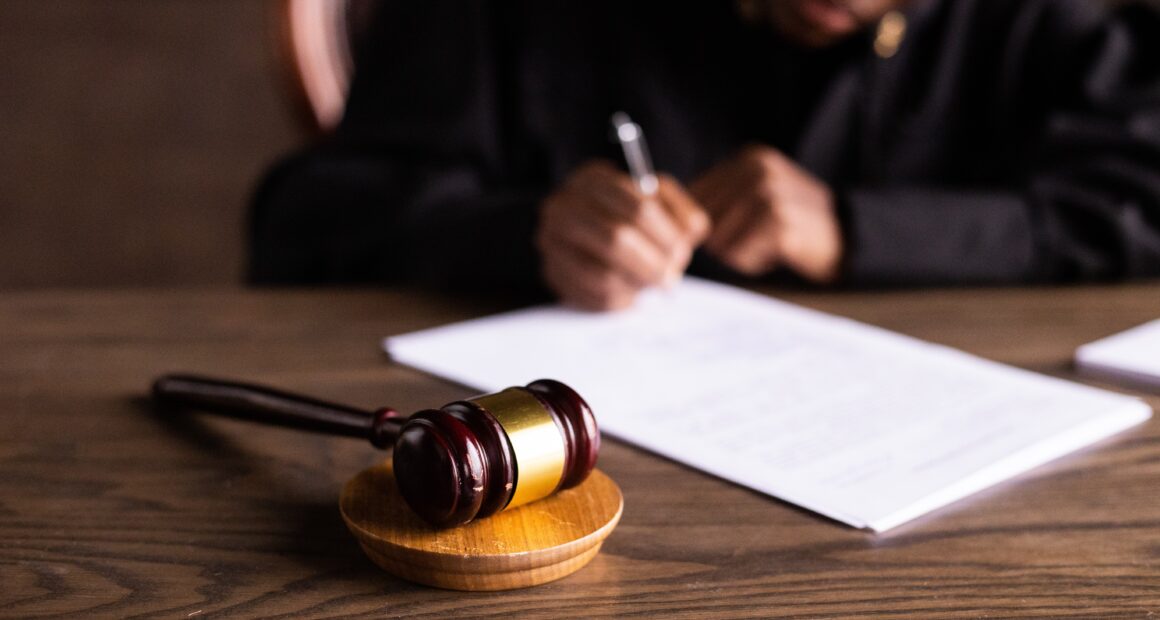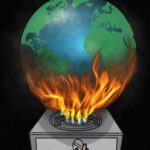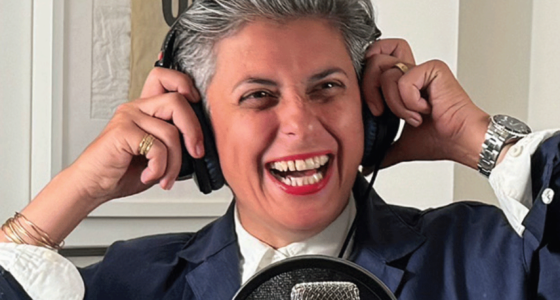An interview with journalist Amber Bracken on her arrest and current legal case against the RCMP

In 2021, photojournalist Amber Bracken was on assignment for The Narwhal in Wet’suwet’en territory in central B.C. Bracken was arrested on the second day of an RCMP raid, detaining those opposing the Coastal GasLink pipeline. Armed with a camera, Bracken was one of 30 people arrested that week. Though she signalled to officers she was a member of the media, and openly displayed her press pass, she was arrested and detained for three days. While the charges against her were later dropped, her arrest is just one of a pattern dating back years: the RCMP has used its presence to stop reporters from doing their jobs. What’s more alarming is that the RCMP also maintains a database tracking journalists, that indicates Bracken was being tracked at the time of her arrest. In February 2023, a lawsuit was officially launched by Bracken and The Narwhal. The lawsuit, citing wrongful detention, wrongful arrest and a violation of the Canadian Charter of Rights and Freedoms, seeks to “establish meaningful consequences for police when they interfere with the constitutional rights of journalists,” according to The Narwhal. Bracken, now in the midst of legal proceedings, spoke candidly about her experience with the Review.
The following interview has been edited for length and clarity.
Are you able to talk about the emotions you felt while you were being arrested?
Amber Bracken: It was a very emotionally fraught moment. I think I was focused on keeping myself together. But there was a big disconnect between my behaviour, my intellectual thought process, and my physical response to it. I remember I was very calm. I stayed in the position that I was in. But as [the RCMP] were breaking down the door, it was like my entire body was vibrating.
Did you anticipate that your arrest would gain so much international media attention?
Bracken: No, it wasn’t something that I anticipated. But I can say that when I was in jail, finding out that there was an outcry was really encouraging because I worry sometimes about Canadian journalism lacking a certain amount of solidarity and backbone.
In your years working in journalism and being a photojournalist, were you ever concerned about getting arrested?
Bracken: I’ve been in heated situations where there was riot police out and I’ve obviously covered that issue for a number of years. But I have always managed to navigate it successfully. I have had situations where I could have been arrested or where police might have been forming lines and I thought that it was a possibility, but I’ve never been arrested before.
Was it a difficult decision to pursue this legal case against the RCMP?
Bracken: It is something that we thought through long and hard. We only just filed the lawsuit [in February 2023], and the arrest and detainment happened in November of 2021. So it’s been long and very carefully considered. It’s a very uneconomic case, which means it’s going to cost a lot more than it is even possible or likely to recoup. But, ultimately, the team at The Narwhal and myself agreed that the issue of press freedom requires a correction. And because we have been petitioning or trying to negotiate better relationships with the RCMP through the CAJ and being an interlocutor in other court proceedings like Fairy Creek, we’ve noticed that the patterns have not changed. This was the only right thing to do if we wanted to continue to report in Canada.
Do you feel like the Canadian government should be doing more to protect press freedom and protect the rights of journalists in general?
Bracken: We’re hoping, in this case, to revisit this question. Because currently, individually, there’s no specific protection for journalists as a separate or distinct category under the Charter of Rights and Freedoms. So we have protection under the general, section 2B, but it’s a section that applies to all Canadians. And we think that it’s time to revisit the conversation about whether journalists need special protection under the Charter.
Do you worry that journalism has become more dangerous over the last several years?
Bracken: I think journalism has always been dangerous. I think in Canada, we have been insulated from it. And I think we have a tendency to take it for granted. And like all democratic freedoms, and all democratic rights, it requires defense. It requires us to be vigilant and to really maintain those boundaries. I’m not sure what exactly we need to do. But I know we need to do something collectively to repair the relationship between journalism as a profession and re-enshrine ourselves within the social values of our time.
Do you think there’s anything that up-and-coming journalists should know about keeping themselves safe while reporting in tense scenarios?
Bracken: I think being engaged with your journalism associations and organizations is a great place to start. I think, looking into things like hostile environment and first aid training is a good thing to consider. Young journalists also need to think a lot about both digital security and in-person security. But one of the most important things is to educate yourself in terms of what your rights are, and to be armed with information. I think if we arm ourselves with good information, it allows us to make good choices.
About the author
Asha Swann is a multimedia journalist based in Toronto who writes about identity, climate change and culture. Her work has been featured in Xtra, The Nature Conservancy of Canada, STYLE Canada, Indie88, NUVO Magazine, Brightly and more. When she isn’t writing, she’s listening to ‘90s music and drinking coffee. You can read more of her work at ashaswann.com.






